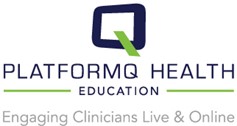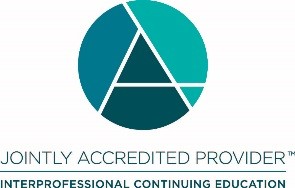CME Presentations
Seeking Control for Moderate‐to‐Severe Asthma
Presentations
Seeking Control for Moderate‐to‐Severe Asthma: The Underestimated Impact of Comorbidities Along the Lifespan
Speakers: Michael Wechsler, MD, MMSc, Professor of Medicine, Division of Pulmonary, Critical Care and Sleep MedicineAnju Peters, MD, MS, Professor of Medicine Duration: 60 minutes
Presented on: March 5, 2024
Speakers

Michael Wechsler, MD, MMSc
Michael Wechsler, MD, MMSc
Professor of Medicine, Division of Pulmonary, Critical Care and Sleep Medicine
Michael Wechsler, MD, MMSc, is a Professor of Medicine in the Division of Pulmonary, Critical Care and Sleep Medicine at National Jewish Health (NJH), Director of the NJH/Cohen Family Asthma Institute, and Associate Vice President for Innovation and Industry Relations at NJH. In addition to clinical work in pulmonary & critical care medicine, Dr. Wechsler’s research focuses on clinical and translational asthma with emphasis on clinical trials in asthma, novel asthma therapies, bronchial thermoplasty, asthma pharmacogenomics, and management of eosinophilic granulomatosis with polyangiitis (i.e. Churg-Strauss Syndrome, CSS). He has led studies focusing on novel biologic agents for asthma and related diseases, including benralizumab, dupilumab, mepolizumab, reslizumab, and tezepelumab.
Anju Peters, MD, MS
Anju Peters, MD, MS
Professor of Medicine
Anju Peters, MD, MS, is a Professor in the Department of Medicine at Northwestern. Moreover, she is the Director of Clinical Research in the Division of Allergy-Immunology and the Medical Director of the Northwestern Medicine Clinical Research Unit. Furthermore, Dr. Peters is the Director of the Center for Clinical Research at the Northwestern University Clinical and Translational Sciences Institute. Her research focuses on the field of chronic rhinosinusitis and its associated comorbidities including allergic rhinitis, asthma and immunodeficiencies. Dr. Peters has published extensively in these areas and is currently involved in translational research and clinical trials in asthma and chronic rhinosinusitis. Currently, she practices as an allergist in the Division of Allergy-Immunology.
CME Information

 Jointly provided by Partners for Advancing Clinical Education (PACE) and PlatformQ Health Education, LLC (PQHE), in collaboration with the Asthma and Allergy Foundation of America (AAFA).
Jointly provided by Partners for Advancing Clinical Education (PACE) and PlatformQ Health Education, LLC (PQHE), in collaboration with the Asthma and Allergy Foundation of America (AAFA).Seeking Control for Moderate‐to‐Severe Asthma: The Underestimated Impact of Comorbidities Along the Lifespan
ACKNOWLEDGEMENT
This activity is supported by an independent medical education grant from Regeneron Pharmaceuticals, Inc. and Sanofi.DATE OF RELEASE/EXPIRATION
This activity was released on March 5, 2024 and is valid until March 5, 2025. Requests for credit must be made no later than March 5, 2025.TARGET AUDIENCE
The primary target audience for this activity are pulmonologists, allergists/immunologists, and specialty advanced practice providers (NPs and PAs). The secondary audience for this activity are primary care physicians, and general practice NPs and PAs.STATEMENT OF NEED/PROGRAM OVERVIEW
Severe uncontrolled asthma leads to multiple negative health and socioeconomic effects. Asthma is also associated with comorbid conditions, some driven by shared type 2 inflammatory pathophysiology, including atopic dermatitis, chronic rhinosinusitis with or without nasal polyps (CRSwNP, CRSsNP), eosinophilic esophagitis (EoE), and chronic urticaria. Some of these comorbidities may aggravate and complicate asthma management and contribute to poor treatment response. Poorly controlled asthma in children can have lasting effects on lung development as well. Join Michael Wechsler, MD and Anju Peters, MD, who will discuss strategies to recognize and better manage moderate‐to‐severe asthma in adults and children. Our panelists will review the latest asthma guidelines, explore the evidence supporting biologic treatments, and reinforce best practices in patient-centered care.EDUCATIONAL OBJECTIVES
After completing this activity, the participant should be better able to:- Summarize the negative effects of comorbidities on asthma disease burden and the ability to achieve asthma control
- Explain the negative outcomes on lung development on the failure to achieve optimum asthma control in children
- Discuss the role of patient and caregiver preferences in the shared decision‐making process and how to align treatment priorities
JOINT ACCREDITATION STATEMENT

In support of improving patient care, this activity has been planned and implemented by Partners for Advancing Clinical Education (PACE) and PlatformQ Health Education, LLC. PACE is jointly accredited by the Accreditation Council for Continuing Medical Education (ACCME), the Accreditation Council for Pharmacy Education (ACPE), and the American Nurses Credentialing Center (ANCC), to provide continuing education for the healthcare team. PHYSICIAN CONTINUING EDUCATION
PACE designates this enduring material for a maximum of 1.0 AMA PRA Category 1 Credit™. Physicians should claim only the credit commensurate with the extent of their participation in the activity.ESTIMATED TIME TO COMPLETE
This activity should take approximately 60 minutes to complete.INSTRUCTIONS TO RECEIVE CREDIT
In order to receive credit for this activity, the participant must (1) read the target audience, learning objectives, and disclosure statements, (2) complete the educational activity online, and (3) complete the post-test and activity evaluation. To receive AMA PRA Category 1 Credits™, participants must receive a score of 75% on the post-test.HARDWARE/SOFTWARE REQUIREMENTS
Participants will need a computer with a recent version of Adobe Flash installed, as well as an internet connection sufficient for streaming media.FEE INFORMATION & REFUND/CANCELLATION POLICY
There is no fee for this educational activity.FACULTY AND DISCLOSURE OF CONFLICTS OF INTEREST
PACE requires every individual in a position to control educational content to disclose all financial relationships with ineligible companies that have occurred within the past 24 months. Ineligible companies are organizations whose primary business is producing, marketing, selling, re-selling, or distributing healthcare products used by or on patients. All relevant financial relationships for anyone with the ability to control the content of this educational activity are listed below and have been mitigated according to PACE policies. Others involved in the planning of this activity have no relevant financial relationships.Name of Faculty or Presenter Conflicts of Interest Michael E. Wechsler, MD Professor of Medicine Director, NJH Asthma Institute National Jewish Health Consultant, Advisor, Speaker: Amgen, Areteia Therapeutics, AstraZeneca, Avalo Therapeutics, Boehringer Ingelheim, Celldex, Cellergy Pharma, Cerecor, Cohero Health, Cytoreason, Eli Lilly, Equillium, Glaxosmithkline, Incyte, Kinaset, Merck, Novartis, Om Pharma, Overtone Therapeutics/Foresite Labs, Phylaxis, Pulmatrix, Rapt Therapeutics, Regeneron, Restorbio, Roche/Genentech, Sanofi/Genzyme, Sentien, Sound Biologics, Tetherex Pharmaceuticals, Teva, Upstream Bio, Verona Pharma Anju Peters, MD Professor of Medicine Northwestern University Feinberg School of Medicine Consultant and Advisor: AstraZeneca, Chiesi, GSK, Lilly, Sanofi Regeneron Jess Severe Asthma Patient Vignette Participant Consultant, Advisor, Speaker: Sanofi DISCLOSURE OF UNLABELED USE
This educational activity may contain discussion of published and/or investigational uses of agents that are not indicated by the FDA. The planners of this activity do not recommend the use of any agent outside of the labeled indications. The opinions expressed in the educational activity are those of the faculty and do not necessarily represent the views of the planners. Please refer to the official prescribing information for each product for discussion of approved indications, contraindications, and warnings.DISCLAIMER:
Participants have an implied responsibility to use the newly acquired information to enhance patient outcomes and their own professional development. The information presented in this activity is not meant to serve as a guideline for patient management. Any procedures, medications, or other courses of diagnosis or treatment discussed in this activity should not be used by clinicians without evaluation of patient conditions and possible contraindications on dangers in use, review of any applicable manufacturer’s product information, and comparison with recommendations of other authorities.CONTACT INFORMATION
Accreditation Support:
For additional information about the accreditation of this activity, please visit https://partnersed.com.Technical Support:
For any technical issues or issues with your CME Certificate, please contact ImmunologyLive at 877-394-1306 or at Support@ImmunologyLive.com.
 Jointly provided by Partners for Advancing Clinical Education (PACE) and PlatformQ Health Education, LLC (PQHE), in collaboration with the Asthma and Allergy Foundation of America (AAFA).
Jointly provided by Partners for Advancing Clinical Education (PACE) and PlatformQ Health Education, LLC (PQHE), in collaboration with the Asthma and Allergy Foundation of America (AAFA).Seeking Control for Moderate‐to‐Severe Asthma: The Underestimated Impact of Comorbidities Along the Lifespan
ACKNOWLEDGEMENT
This activity is supported by an independent medical education grant from Regeneron Pharmaceuticals, Inc. and Sanofi.DATE OF RELEASE/EXPIRATION
This activity was released on March 5, 2024 and is valid until March 5, 2025. Requests for credit must be made no later than March 5, 2025.TARGET AUDIENCE
The primary target audience for this activity are pulmonologists, allergists/immunologists, and specialty advanced practice providers (NPs and PAs). The secondary audience for this activity are primary care physicians, and general practice NPs and PAs.STATEMENT OF NEED/PROGRAM OVERVIEW
Severe uncontrolled asthma leads to multiple negative health and socioeconomic effects. Asthma is also associated with comorbid conditions, some driven by shared type 2 inflammatory pathophysiology, including atopic dermatitis, chronic rhinosinusitis with or without nasal polyps (CRSwNP, CRSsNP), eosinophilic esophagitis (EoE), and chronic urticaria. Some of these comorbidities may aggravate and complicate asthma management and contribute to poor treatment response. Poorly controlled asthma in children can have lasting effects on lung development as well. Join Michael Wechsler, MD and Anju Peters, MD, who will discuss strategies to recognize and better manage moderate‐to‐severe asthma in adults and children. Our panelists will review the latest asthma guidelines, explore the evidence supporting biologic treatments, and reinforce best practices in patient-centered care.EDUCATIONAL OBJECTIVES
After completing this activity, the participant should be better able to:- Summarize the negative effects of comorbidities on asthma disease burden and the ability to achieve asthma control
- Explain the negative outcomes on lung development on the failure to achieve optimum asthma control in children
- Discuss the role of patient and caregiver preferences in the shared decision‐making process and how to align treatment priorities
JOINT ACCREDITATION STATEMENT

In support of improving patient care, this activity has been planned and implemented by Partners for Advancing Clinical Education (PACE) and PlatformQ Health Education, LLC. PACE is jointly accredited by the Accreditation Council for Continuing Medical Education (ACCME), the Accreditation Council for Pharmacy Education (ACPE), and the American Nurses Credentialing Center (ANCC), to provide continuing education for the healthcare team. PHYSICIAN CONTINUING EDUCATION
PACE designates this enduring material for a maximum of 1.0 AMA PRA Category 1 Credit™. Physicians should claim only the credit commensurate with the extent of their participation in the activity.ESTIMATED TIME TO COMPLETE
This activity should take approximately 60 minutes to complete.INSTRUCTIONS TO RECEIVE CREDIT
In order to receive credit for this activity, the participant must (1) read the target audience, learning objectives, and disclosure statements, (2) complete the educational activity online, and (3) complete the post-test and activity evaluation. To receive AMA PRA Category 1 Credits™, participants must receive a score of 75% on the post-test.HARDWARE/SOFTWARE REQUIREMENTS
Participants will need a computer with a recent version of Adobe Flash installed, as well as an internet connection sufficient for streaming media.FEE INFORMATION & REFUND/CANCELLATION POLICY
There is no fee for this educational activity.FACULTY AND DISCLOSURE OF CONFLICTS OF INTEREST
PACE requires every individual in a position to control educational content to disclose all financial relationships with ineligible companies that have occurred within the past 24 months. Ineligible companies are organizations whose primary business is producing, marketing, selling, re-selling, or distributing healthcare products used by or on patients. All relevant financial relationships for anyone with the ability to control the content of this educational activity are listed below and have been mitigated according to PACE policies. Others involved in the planning of this activity have no relevant financial relationships.Name of Faculty or Presenter Conflicts of Interest Michael E. Wechsler, MD Professor of Medicine Director, NJH Asthma Institute National Jewish Health Consultant, Advisor, Speaker: Amgen, Areteia Therapeutics, AstraZeneca, Avalo Therapeutics, Boehringer Ingelheim, Celldex, Cellergy Pharma, Cerecor, Cohero Health, Cytoreason, Eli Lilly, Equillium, Glaxosmithkline, Incyte, Kinaset, Merck, Novartis, Om Pharma, Overtone Therapeutics/Foresite Labs, Phylaxis, Pulmatrix, Rapt Therapeutics, Regeneron, Restorbio, Roche/Genentech, Sanofi/Genzyme, Sentien, Sound Biologics, Tetherex Pharmaceuticals, Teva, Upstream Bio, Verona Pharma Anju Peters, MD Professor of Medicine Northwestern University Feinberg School of Medicine Consultant, Advisor, Speaker: AstraZeneca, GSK, Sanofi Regeneron Jess Severe Asthma Patient Vignette Participant Consultant, Advisor, Speaker: Sanofi DISCLOSURE OF UNLABELED USE
This educational activity may contain discussion of published and/or investigational uses of agents that are not indicated by the FDA. The planners of this activity do not recommend the use of any agent outside of the labeled indications. The opinions expressed in the educational activity are those of the faculty and do not necessarily represent the views of the planners. Please refer to the official prescribing information for each product for discussion of approved indications, contraindications, and warnings.DISCLAIMER:
Participants have an implied responsibility to use the newly acquired information to enhance patient outcomes and their own professional development. The information presented in this activity is not meant to serve as a guideline for patient management. Any procedures, medications, or other courses of diagnosis or treatment discussed in this activity should not be used by clinicians without evaluation of patient conditions and possible contraindications on dangers in use, review of any applicable manufacturer’s product information, and comparison with recommendations of other authorities.CONTACT INFORMATION
Accreditation Support:
For additional information about the accreditation of this activity, please visit https://partnersed.com.Technical Support:
For any technical issues or issues with your CME Certificate, please contact ImmunologyLive at 877-394-1306 or at Support@ImmunologyLive.com.

